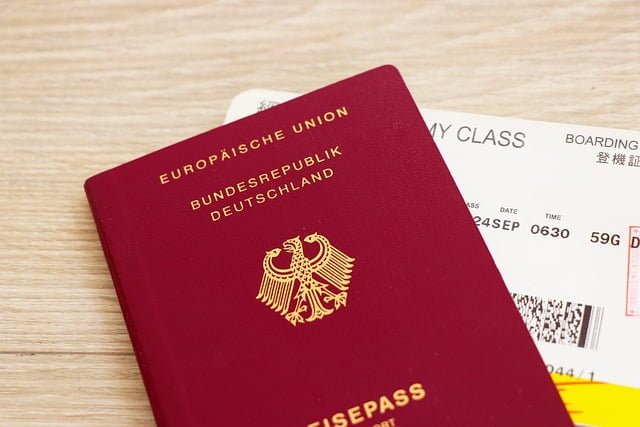Cape Verde from A to Z
In the following blog post, we have summarized everything you need to know for a vacation in Cape Verde from A to Z.
Car rental in Cape Verde
Car rental companies are now on the larger islands and some agents who work with local providers (e.g. https://www.caboverderentalcars.com/de). An EU driver’s license is sufficient to rent a car. Please note that the roads outside the cities are usually in an adventurous state, and in the event of a breakdown or accident, it may take a long time for help to arrive. Alternatively, you can hire a local driver and car to take you around the island. Nice contacts and first-hand information included!
- Hertz car rental in Santiago: https://www.hertz.de/rentacar/location/kapverden/praia/RAIT50
- Hertz car rental in Sal: https://www.hertz.de/rentacar/location/kapverden/sal/SIDC61
- TUI car rental in Sal: https://www.tuicars.com/kapverden/mietwagen-sal-kapverden/
- TUI car rental in Boa Vista: https://www.tuicars.com/kapverden/mietwagen-boa-vista-kapverden/
Entering the Cape Verde Islands
As of 2019, an airport security tax (“TAS”) of CVE 3,400 (= approx. EUR 30.80) is payable by all tourists. The tax can be paid online (www.ease.gov.cv) in advance by credit card at the time of registration. The larger tour operators, such as TUI, usually handle the registration.
You do not need to register in advance if you enter the country on a cruise ship.

Electricity & Sockets
Voltage is 220 V at 50 Hz. Appliances that work on 230 V in Germany will also work on the Cape Verde Islands. The sockets on Cape Verde are of type C or F and are, therefore, compatible with those in Germany. Adapters are not required.
Emergencies
There is no German Embassy in Cape Verde. The German Embassy in Lisbon is responsible. However, an Honorary German Consul in Mindelo can be contacted in an emergency (e-mail: mindelo@hk-diplo.de / telephone: +238 231 27 25).
Food & Drink
The delicious local dishes usually consist of locally grown vegetables and fish or meat (usually goat or chicken). The national dish, “catchupa”, is a stew of corn and beans, occasionally enriched with vegetables and meat.
Cape Verde’s specialties include grogue (a sugar cane schnapps), goat’s cheese from Santo Antão and coffee from Fogo.
Getting to Cape Verde
The flight time from Germany to Cape Verde is 6-7 hours. The international airports in Cape Verde are Santiago, São Vicente, Sal, and Boa Vista. From Germany, TUIfly usually combines flights to Sal and Boa Vista. The flights, therefore, have a short stopover.
In recent years, European cruise lines have visited some of the islands. The cruises usually depart from the Canary Islands.
Medical care in the islands
As in most other countries, medical treatment must be paid for locally. International health insurance should be taken out before traveling. No specific vaccinations are required for Cape Verde. Up-to-date information can be found on the German Foreign Office website (https://www.auswaertiges-amt.de/de/service/laender/caboverde-node/caboverdesicherheit/208824).
Your first aid kit should include medicines for upset stomach, diarrhea, sunburn, mosquito repellent, and disinfectant spray. It is also essential to carry sunscreen with a high sun protection factor.
Money and Currency
The local currency is the Cape Verdean Escudo (CVE). The usual exchange rate is 110 CVE to 1 EUR. Attention: The CVE cannot be exported. It can only be exchanged for the original exchange voucher.
There are ATMs at international airports, major hotels, and local banks. You can withdraw Cape Verdean Escudos (CVE) with a credit card for a small fee. Euros are often accepted in tourist areas. However, change is usually given in escudos.
Public Health
Unfortunately, there is always a risk of gastrointestinal illness in southern countries. This can be reduced by taking precautions such as washing your hands regularly, avoiding tap water, and eating unpeeled fruit and vegetables. Meat and fish should always be cooked thoroughly outside the hotel. Hotels usually pay a lot of attention to hygiene. They use industrially produced ice cubes, which are safe. Outside the hotel, avoid ice cubes and opt for bottled or canned drinks.
Public Transportation
Taxis and minibuses (Hiace) are available on all islands. Shared taxis (aluguer) are a cheaper option. However, they do not have a fixed schedule. Drivers usually wait until the shared taxi is full. This may take longer during off-peak hours. In the larger cities, however, regular buses now connect the various districts and surrounding areas.
Safety in the Cape Verde Islands
Cape Verde is considered a safe destination, and the locals are hospitable. Unfortunately, there is the usual petty crime in the tourist hotspots.
The Language
Most Cape Verdeans speak the official language, Portuguese, and the local dialect, Criolu, which is a mixture of African languages and French. English is increasingly spoken in the tourist areas.
Taxi
Taxi fares in Cape Verde are reasonable by Central European standards. Always ask how much the trip will cost before you leave.
Time Difference
There is no summer and winter time in Cape Verde. The time difference compared to Germany is, therefore, -3 hours during European summer time (CEST) and -2 hours during European winter time (CET).

Telephone and Internet
There are inexpensive prepaid cards available from local cell phone providers that include data, and the network is very well developed. Free Wi-Fi is available in most hotels and public buildings.
Tipping
A small gratuity for services rendered is customary and accepted. However, there is no fixed percentage expected by Cape Verdeans.
Visas
EU citizens are not required to have a visa to enter Cape Verde for a stay of up to 30 days. A passport valid for at least six months after the date of departure is required for entry.
Visitor’s tax
Tourist tax is payable by all visitors over the age of 16. Hotels usually collect it at check-in. The current rate is CVE 276 (approx. EUR 2.50) per person per night (max. ten nights per accommodation).
Water
There are virtually no natural drinking water sources on many of Cape Verde’s islands. Therefore, seawater is desalinated, and drinking water is imported. Tap water should not be consumed.
Weather
The weather in Cape Verde is enjoyable all year round. Temperatures average 23-30°C during the day. Due to the low humidity and the constant wind, the temperature is more pleasant than in the often sweltering German summer. Be sure to wear adequate sun protection. Otherwise, you will not notice the intensity of the UV radiation until it is too late. It can get a bit chilly in the evenings, especially in the winter months. However, a light jacket should be sufficient.
You can find more information about the other Cape Verdean islands in our island overview.

